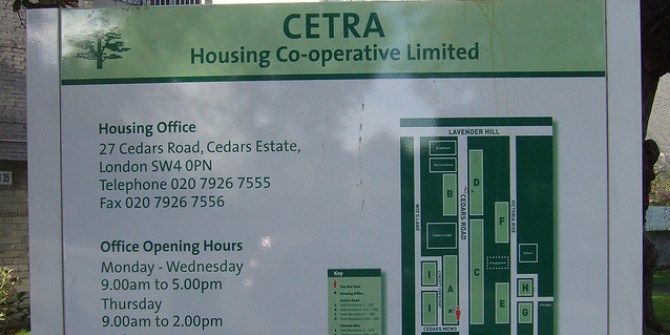 A lack supply on the housing market, a private rented sector that sees rents spiralling upwards, and the changing role of social landlords combine in reducing the ability of the nation to house its citizens in affordable homes. An affordable and flourishing social housing sector is a major part of the solution to the UK’s housing crisis, argues Abigail Robson.
A lack supply on the housing market, a private rented sector that sees rents spiralling upwards, and the changing role of social landlords combine in reducing the ability of the nation to house its citizens in affordable homes. An affordable and flourishing social housing sector is a major part of the solution to the UK’s housing crisis, argues Abigail Robson.
Today is Housing Day when those who work in social housing mark the benefits of the sector while countering the negative perceptions surrounding social tenants sometimes peddled by the media. Housing Day also enables social housing workers to mark their achievements in the previous year and promote housing as a key political issue.
Research by various pollsters underlines what those working in social housing know from their collective experience – that housing is too far down the political agenda, superseded by immigration, the NHS and the economy. Yet we contend that housing is fundamental to creating the good society and building an effective economy that supports business development and employee mobility. The role of good quality housing in tackling core health problems is well documented. Perhaps immigration would not be such a toxic issue if competition for scarce housing resources was less fierce. And an affordable and flourishing social housing sector is a major part of the solution to the UK’s housing crisis.
It is worth visiting the extent of the housing crisis in the UK. There are 5 million people on social housing waiting lists mainly because of a dwindling social housing stock, a growing population and an accelerating rate of household formation. As the social housing campaign, SHOUT, has shown, social housing expanded throughout most of the last 100 years. Yet over the past few decades, social housing has been denuded, relegated to a tenure of last resort, with tenants increasingly demonised as part of a welfare dependent class of ‘skivers’ in contrast to the ‘strivers’ living in other tenures. The supply of social housing has dwindled with the Right to Buy, voluntary sales and conversions of social housing into so-called ‘Affordable Rent’ reducing the social housing sector’s ability to respond to rising demand.
Homelessness has increased by a fifth in the last four years. Housebuilding is at its lowest for 100 years. And the affordability problem in the UK’s housing market, stoked by cheap credit in the years before the credit crunch, is almost back to where it was in 2007 with the average house price to average income ratio at 6.7 to 1. While house prices are lower than at their pre-credit crunch peak, wages have stagnated at a greater rate, thereby entrenching housing market unaffordability.
Rents are spiralling upwards in the private rented sector, underpinned by the taxpayer through a ballooning housing benefit budget. Private sector rents have climbed to an all-time average high of £761 monthly, rising by 2.4 per cent in the year to August alone. This has been fuelled by growth in buy-to-let which removes new homes from the first time buyer market, so embedding the Generation Rent phenomenon more deeply.
The nature of social renting is also changing as government policies push housing associations increasingly towards the commercial sphere. Many housing associations have moved into commercial activities to subsidise house building since the government reduced public subsidy by two thirds in 2010 – the largest proportional fall in the Comprehensive Spending Review in that year. The so-called ‘Affordable Rent’ programme, replacing funding for social housing, requires rents to be set at up to 80 per cent of the market level, so worsening housing affordability.
Taken together with low public investment, land-banking, rampant ‘nimbyism’ in many rural areas, and home owners resisting new housing supply as it threatens their equity, housing unaffordability and the changing role of social landlords are all reducing the ability of the nation to house its citizens in affordable homes.
We need to reaffirm that the social housing sector has much to offer the UK. Firstly, despite the misleading portrayal of TV programmes like Benefits Street, social housing is not a repository of welfare dependency. In actuality, the majority of working age social tenants are in work, training or education. Secondly, new social house building offers good value for money to the taxpayer as it stimulates economic growth, supports local supply chains and provides skilled employment. Thirdly, the value that social landlords create goes beyond the provision of housing alone. Each year, social landlords invest £750 million from their rental incomes to support employment and training schemes for tenants, to improve health and well-being and to tackle financial exclusion.
All of these economic and societal benefits are at risk unless those of us who are proud to work in social housing not only stand up on Housing Day and proclaim our contribution but continue to do so each and every day until next May’s General Election.
Note: This article gives the views of the author, and not the position of the British Politics and Policy blog, nor of the London School of Economics. Please read our comments policy before posting. Featured image credit: George Rex CC BY-SA 2.0
 Abigail Robson is Vice-Chair of Trident Social Investment Group and a PhD candidate at the University of Central England. Her topic is measuring social value in procurement in housing supply chains.
Abigail Robson is Vice-Chair of Trident Social Investment Group and a PhD candidate at the University of Central England. Her topic is measuring social value in procurement in housing supply chains.







